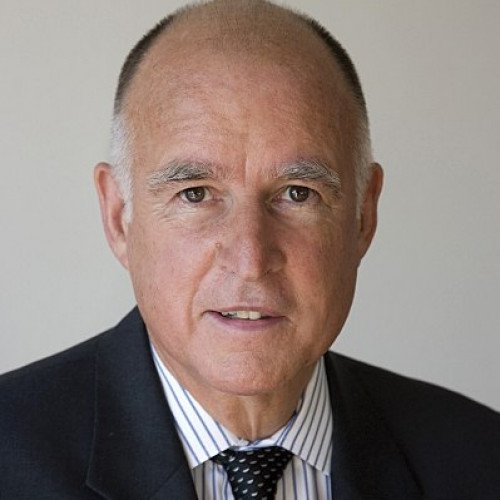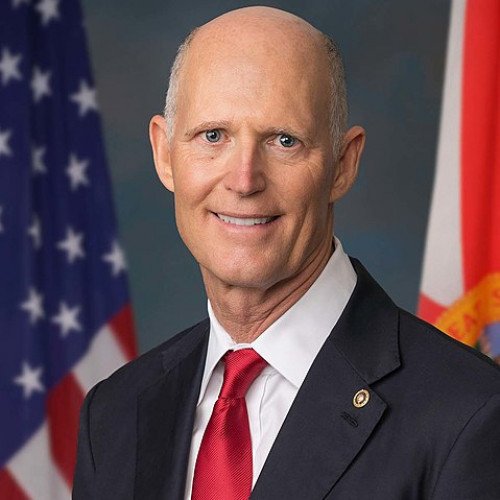Jerry Brown VS Rick Scott

Jerry Brown
Edmund Gerald Brown Jr. (born April 7, 1938) is an American politician who served as the 34th and 39th governor of California from 1975 to 1983 and 2011 to 2019. A member of the Democratic Party, he was elected Secretary of State of California in the early 1970s; Brown later served as Mayor of Oakland from 1999 to 2007 and Attorney General of California from 2007 to 2011. He was both the oldest and sixth-youngest governor of California due to the 28-year gap between his second and third terms. Upon completing his fourth term in office, Brown became the third longest-serving governor in U.S. history, serving 16 years and 5 days in office.Born in San Francisco, he was the son of Bernice Layne Brown and Pat Brown, who was the 32nd Governor of California (1959–1967). After graduating from the University of California, Berkeley and Yale University, he practiced law and began his political career as a member of the Los Angeles Community College District Board of Trustees (1969–1971). He was elected to serve as the 23rd Secretary of State of California from 1971 to 1975. At 36, Brown was elected to his first term as governor in 1974, making him the youngest California Governor in 111 years. In 1978, he won his second term. During his governorship, Brown ran unsuccessfully as a candidate for the Democratic presidential nomination in 1976 and 1980. He declined to pursue a third term as governor in 1982, instead making an unsuccessful run for the United States Senate that same year. After traveling abroad, he returned to California and served as the sixth Chairman of the California Democratic Party (1989–1991), attempting to run for U.S. President once more in 1992. He then moved to Oakland, where he hosted a talk radio show; Brown soon returned to public life, serving as Mayor of Oakland (1999–2007) and Attorney General of California (2007–2011). He ran for his third and fourth terms as governor in 2010 and 2014, his eligibility to do so having stemmed from California's constitutional grandfather clause. On October 7, 2013, he became the longest-serving governor in the history of California, surpassing Earl Warren.
Statistics for this Xoptio

Rick Scott
Richard Lynn Scott (né Myers, December 1, 1952) is an American politician and businessman serving as the junior United States senator from Florida, serving in that office since 2019. A member of the Republican Party, he was the 45th governor of Florida from 2011 to 2019. Scott is a graduate of the University of Missouri–Kansas City and the Dedman School of Law at Southern Methodist University. In 1987, after serving in the United States Navy and becoming a law firm partner, he co-founded Columbia Hospital Corporation. Columbia later merged with another corporation to form Columbia/HCA, which eventually became the largest private for-profit health care company in the United States. Scott was pressured to resign as chief executive of Columbia/HCA in 1997. During his tenure as chief executive, the company defrauded Medicare, Medicaid and other federal programs. The Department of Justice ultimately fined the company $1.7 billion in what was at the time the largest health care fraud settlement in U.S. history. Scott was not charged with a crime. Following his departure from Columbia/HCA, Scott became a venture capitalist and pursued other business interests. Scott ran for governor of Florida in 2010. He defeated Bill McCollum in a vigorously contested Republican primary election, and then narrowly defeated Democratic nominee Alex Sink in the general election. Scott was re-elected in 2014, defeating former governor Charlie Crist. He was barred by term limits from running for re-election in 2018, and instead ran for the United States Senate that year. Scott won the 2018 Florida Senate election, defeating Democratic incumbent Bill Nelson. The initial election results were so close that they triggered a mandatory recount. The recount showed that Scott had won by 10,033 votes; Nelson then conceded the race. Scott took office following the expiration of his term as governor of Florida on January 8, 2019.